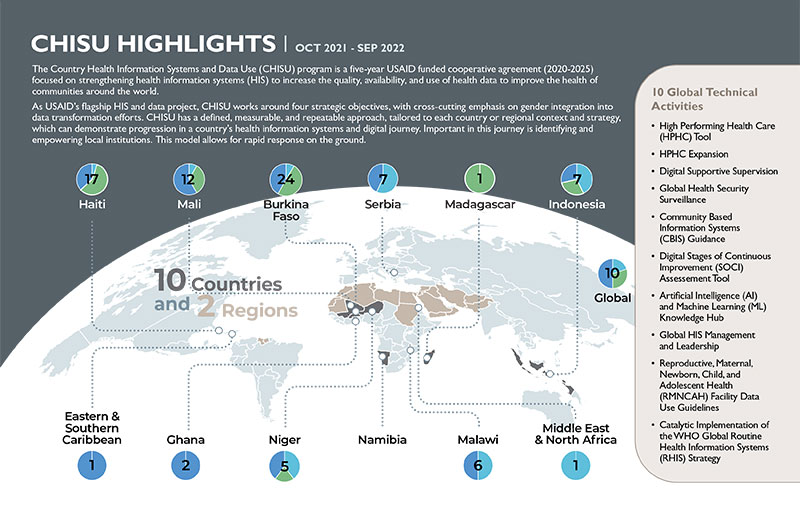CHISU Y2 Annual Report
This report covers our second year of implementation, from October 2021 to September 2022.
The Country Health Information Systems and Data Use (CHISU) program strengthens country capacity and leadership to manage and use health information systems (HIS) and data to make evidence-based decisions.
The CHISU consortium is led by JSI Research & Training Institute, Inc. (JSI), with partners RTI International, Vital Strategies, Macro-Eyes, Jembi Health Systems, and Global Evaluation and Monitoring Network for Health.
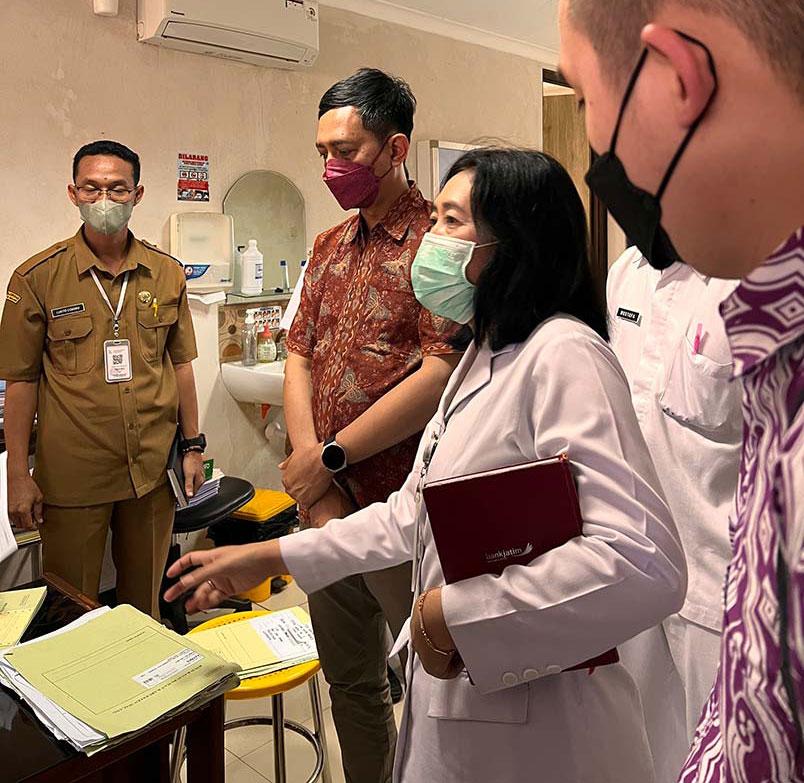
CHISU helps countries overcome the complex challenges to HIS evolution. The United States Agency for International Development (USAID) designed CHISU to take an integrated approach to health systems strengthening and to work across all health areas.

CHISU envisions country health systems in which stakeholders at every level, including health workers, can access high-quality data generated from multiple, interoperated data sources.
The program also aims to support country level stakeholders' capacity building, so they can use those data to guide policy and improve resource allocation, service delivery, and system performance.
CHISU’s second year was characterized by highly collaborative relationships within countries and across global bodies, and project growth, including in the number of countries, regions, areas of work, and experts.
Strategic Objectives
HIS Governance
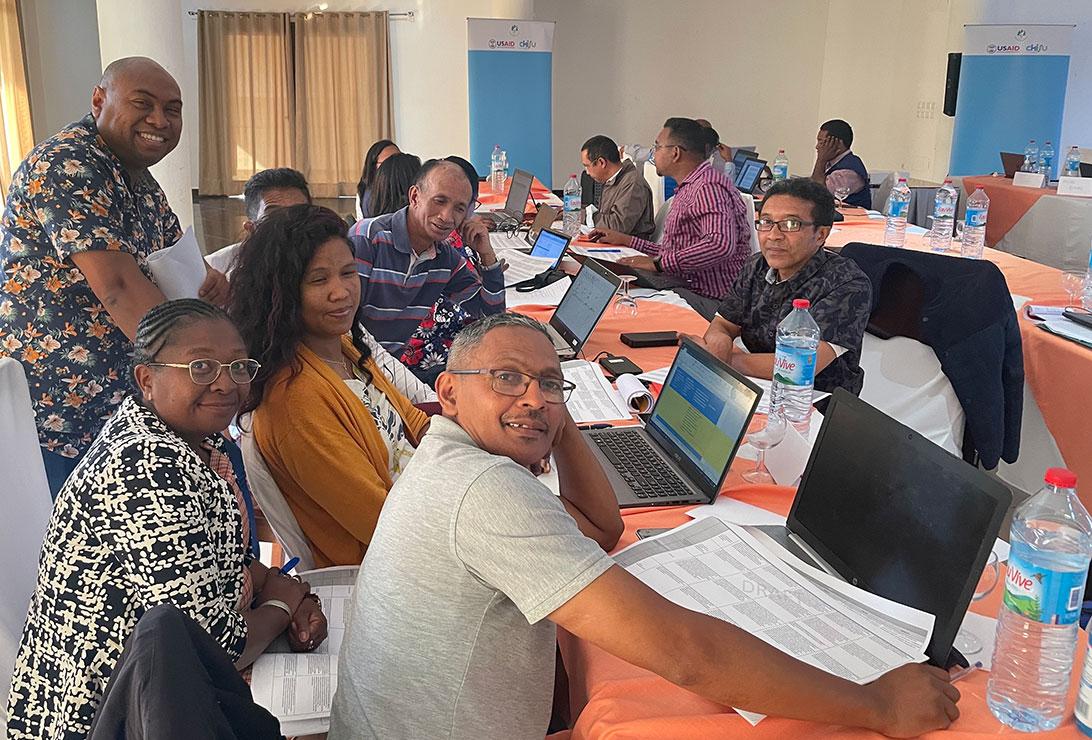
In our second year, we continued to strengthen governance and health information systems enabling environments in implementing countries: Burkina Faso, Haiti, Indonesia, Madagascar, Malawi, Mali, Niger, and Serbia.
Systems and Software
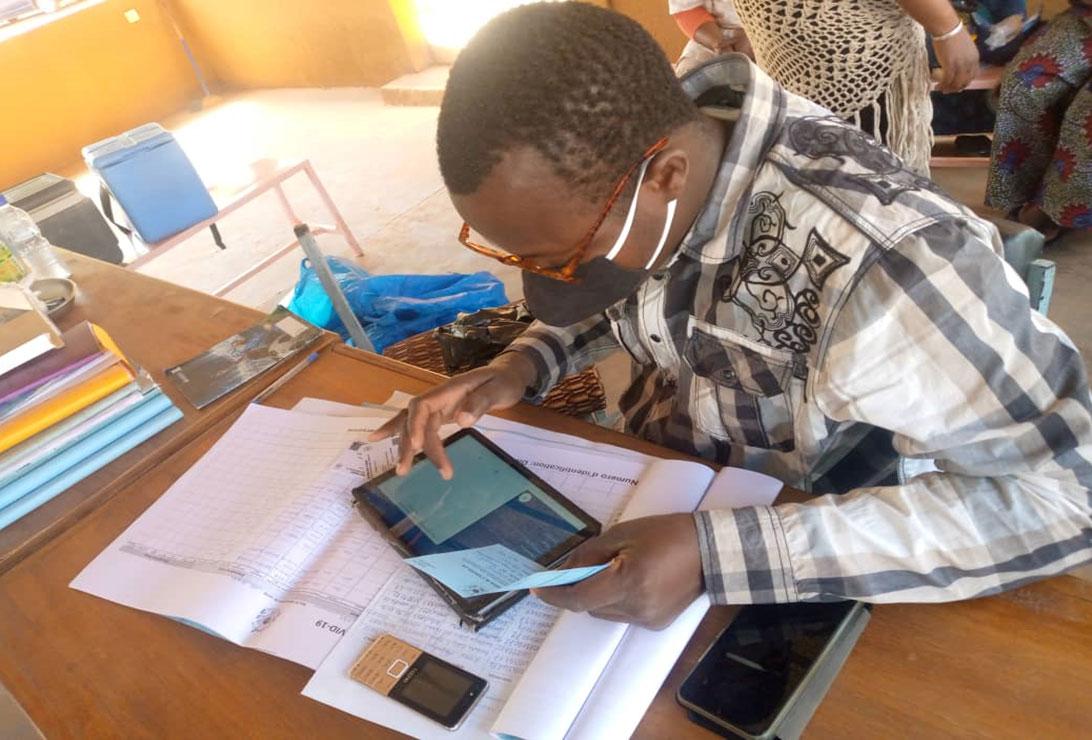
We worked in countries such as Burkina Faso, Haiti, Indonesia, Madagascar, Mali, and Niger to develop or enhance health information systems to respond to user needs, making high-quality data available to decision-makers.
Data Quality and Use
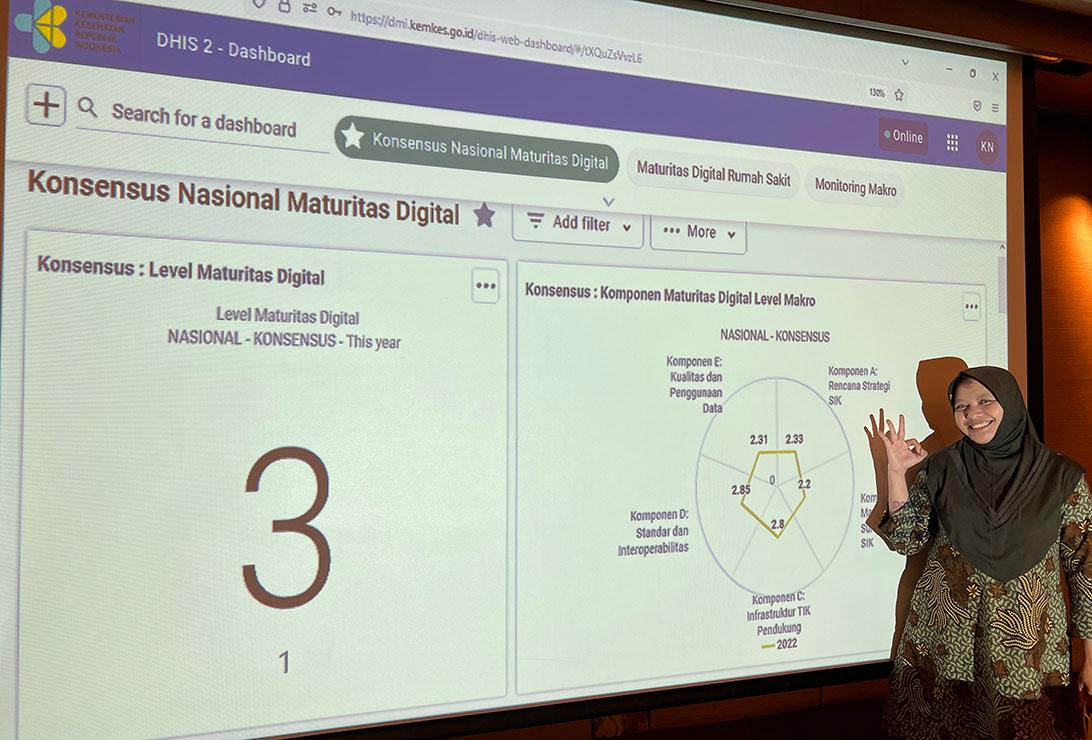
Increased demand and use of data and information to address health priorities, gaps, and challenges have been key objectives in countries such as Burkina Faso, Ghana, Haiti, Indonesia, Malawi, Mali, Niger, and Serbia.
Health System Strengthening
CHISU continues to expand USAID’s investment in integrated HIS and to contribute to USAID’s Vision for Health Systems Strengthening and Vision for Action in Digital Health [see diagram].
Our theory of how our interventions and results contribute to health systems strengthening remain relevant. If high-quality data are used to make policy and health system optimization decisions, health disparities will be reduced. These data must be disaggregated to help inform effective, safe, and people-centered care, improving health system’s responsiveness and resources.
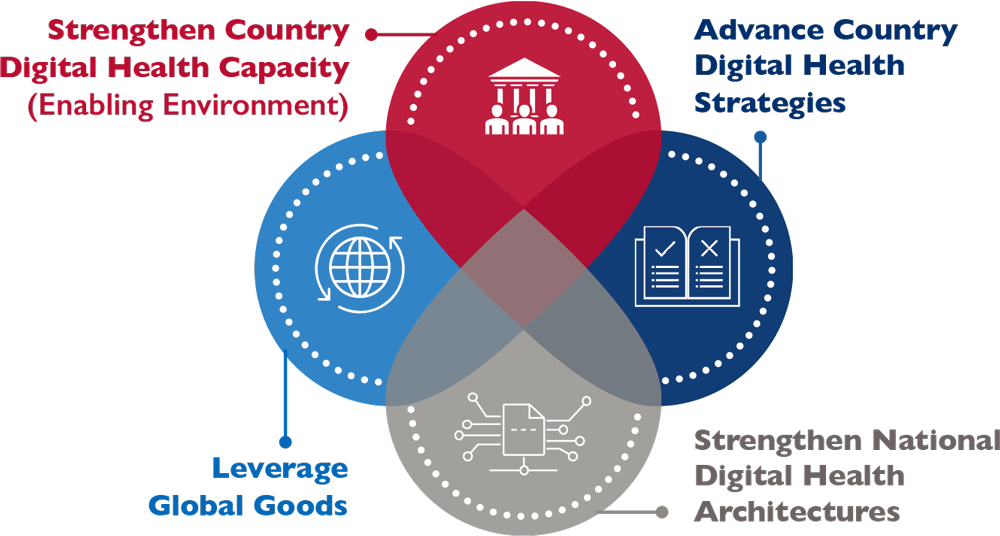
Source: USAID Digital Health Vision.
Learning

To generate learning insights, CHISU synthesized emerging trends from activity report narratives and other routinely reported data. Success factors, challenges, and examples were identified to support learning.
Gender

CHISU continues to provide global leadership for gender integration in health information systems, with a significant increase in gender considerations in program activities and strategic planning.
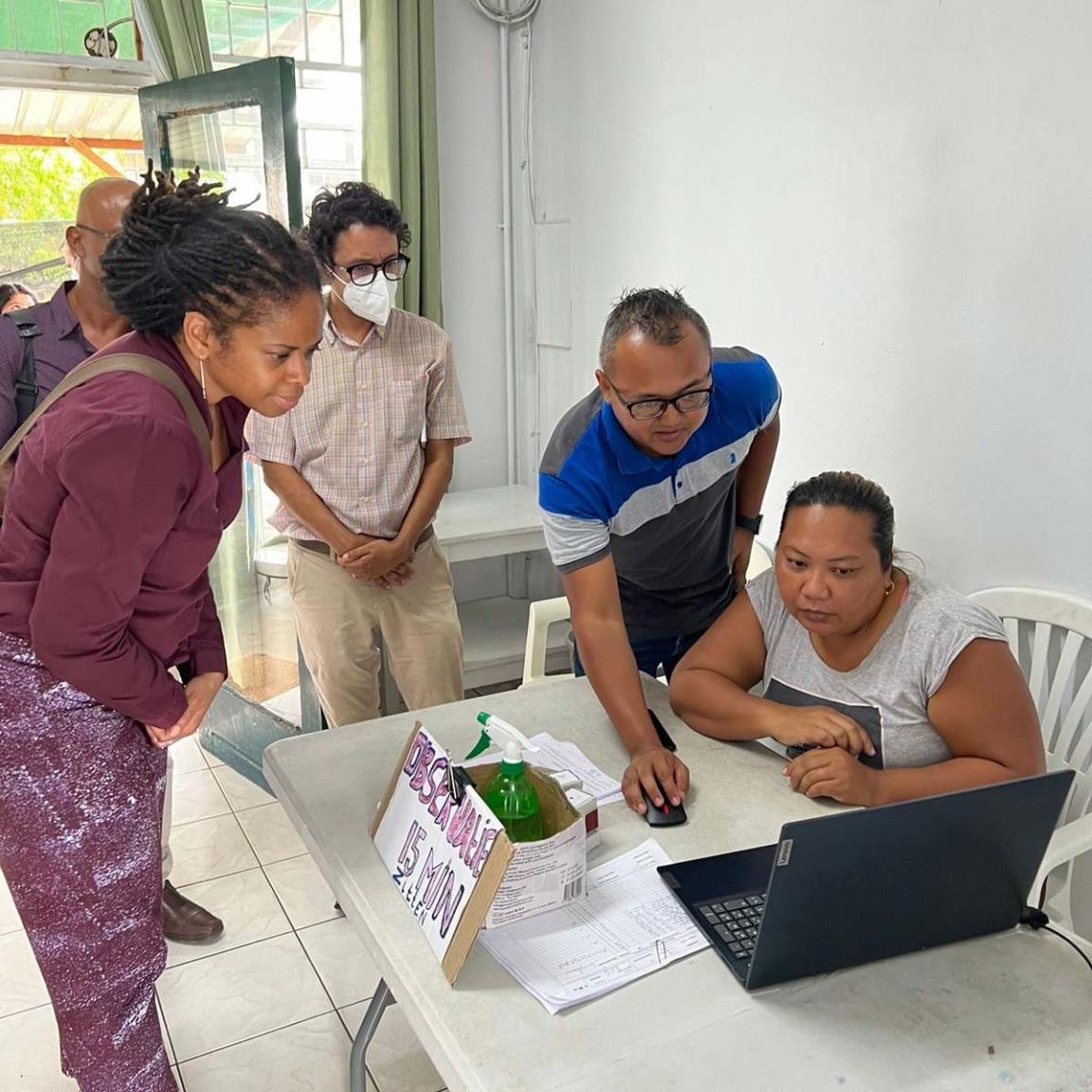
With its many different activities in different contexts, CHISU has demonstrated the value of foundational investments while being highly responsive to emerging needs.
As we approach the mid-project mark, we will continue to focus on responding to USAID’s and country governments’ health information system strengthening priorities, while learning from these interventions and adapting our implementation for greater impact.
Country Health Information Systems and Data Use (CHISU) is USAID’s flagship data and information system program to strengthen host country capacity and leadership to manage and use health information systems to improve evidence-based decision-making.
